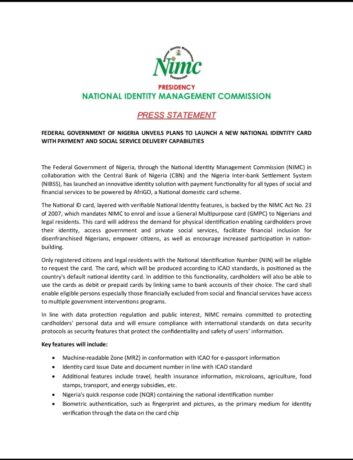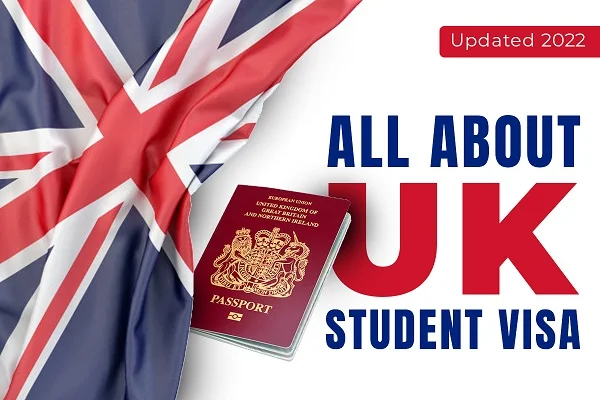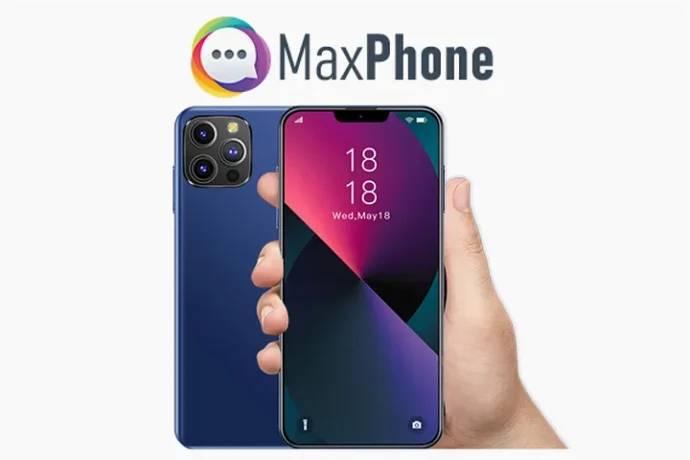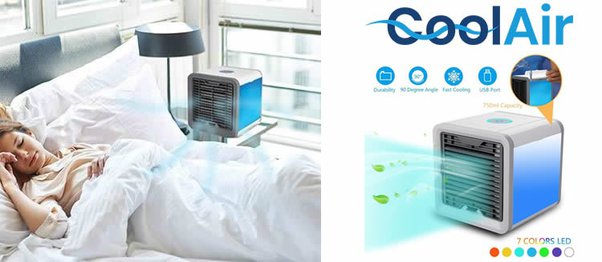
Nigerian Government To Launch New National Identity Card With Special Features
The Nigerian NATIONAL IDENTITY MANAGEMENT COMMISSION is responsible for the provision of identity cards to citizens to ensure adequate recognition of everyone at all times. Successive governments in Nigeria have come up with some level of moderation or changes on the identity cards. The last changes came around 2013 under the presidency of His Excellency, […]
Read More
UK Student Visa 2024: The Essential Guide for International Students
Some years ago, when I was ready to do my Master’s in the United Kingdom, it was very difficult to get the needed information. I spent both time and financial resources to get some of the pieces of information I needed. Three months into the time for me to travel, I was yet to get […]
Read More
MaxPhone review 2024: best Android smartphone of the year
Using an Android phone can make a difference with a good processor and storage capacity. MaxPhone is the Android phone to go for when you are tired of the unnecessary lag while browsing or using your phone for other things. The phone has made names for itself due to the above reasons. Among smartphones, MaxPhone […]
Read More
TVShareMax Review 2024: the best screen mirroring device of the year
Little did I know how best to utilize my smart television until the day I had a seminar presentation. I was eager to have my paper reviewed by other experienced presenters when one of them told me to screen share my slides using TVShareMax. That was my first time hearing the name. I wasn’t sure […]
Read More
137 out of the 287 schoolchildren kidnapped in Kaduna have been released, the Nigerian military says
Beams of smiles and joy have returned to the faces of the parents, friends, and relatives of some of the 287 schoolchildren kidnapped in Kaduna early this month. The schoolchildren, comprising primary and secondary school children in Kuriga community of the state numbering 287, were abducted by yet-to-be-identified abductors from their school before the security […]
Read More
CoolEdge AC Review: The best portable air cooler 2024
The first time I had my attention stolen from me by Cooledge AC was last year when I visited my friend on one hot afternoon and met him watching television with a cool breeze around him. I took time to discover what was producing the cool air. Eventually, I realized a mini-ac called Cooledge air […]
Read More
Jay-Z’s Shawn Carter Foundation Scholarship Application 2024 | Apply Now!
Introduction to the Jay Z Foundation Scholarship The Shawn Carter Foundation Scholarship, established by Jay-Z and his mother, Gloria Carter, is a philanthropic initiative that seeks to provide educational opportunities and financial support to students facing economic hardships. Named after Jay-Z, whose given name is Shawn Carter, the foundation aims to empower young individuals to […]
Read More
Davis-Putter Scholarship Application 2024 | Apply Now!
The Davis-Putter Scholarship is a prestigious award that provides financial support to undergraduate and graduate students who are actively involved in social justice activism. Established in 1961, the scholarship aims to assist students who demonstrate a commitment to creating positive change in their communities. The Davis-Putter scholarship not only alleviates the financial burden of education […]
Read More
Apply for Elizabeth Garde National Scholarship 2024
The Elizabeth Garde National Scholarship 2024 is an esteemed scholarship program that aims to support and recognize outstanding students across the country. Established in honor of the renowned education advocate Elizabeth Garde, this scholarship provides financial assistance to deserving individuals who demonstrate exceptional academic achievements, leadership skills, and a strong commitment to community service. The […]
Read More
Mesothelioma Scholarship Application 2024 | Apply Now!
Mesothelioma is a rare and aggressive form of cancer that affects the lining of the lungs, abdomen, or heart. It is primarily caused by exposure to asbestos, a mineral that was once widely used in construction and manufacturing. The impact of mesothelioma goes beyond the physical and emotional toll it takes on victims and their […]
Read More

